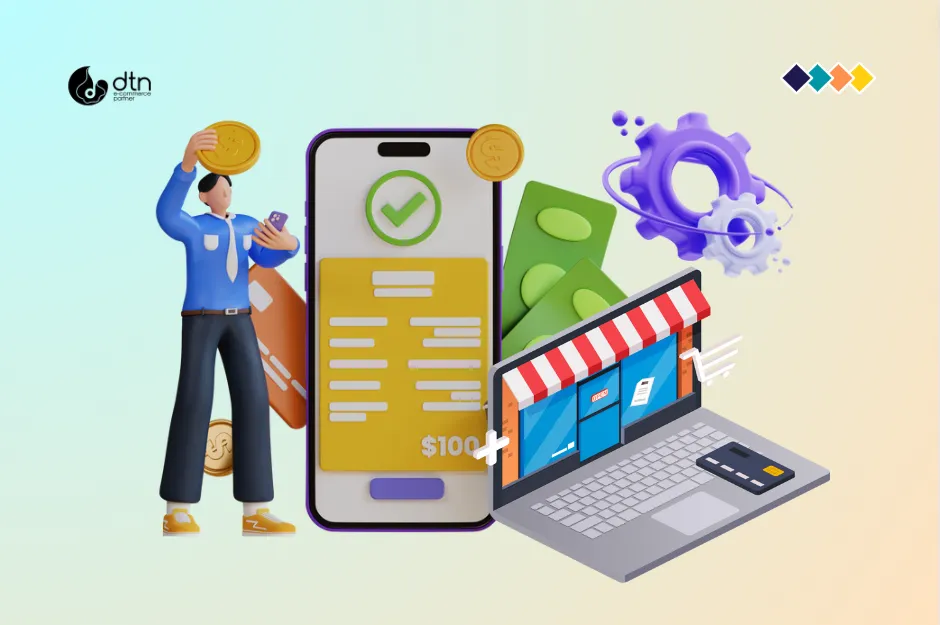In today’s interconnected digital economy, e-commerce businesses are no longer confined by geographical boundaries. Expanding into global markets opens up vast opportunities but also introduces challenges, particularly in managing transactions across multiple currencies. Enter multi-currency payment gateways – a vital tool for breaking financial barriers and enabling seamless international commerce.
Table of Contents
1. Understanding the Challenges of Global E-commerce
Expanding to international markets is an exciting prospect for online businesses, but it brings its share of complexities. Handling payments in different currencies can lead to:
- High Transaction Costs: Converting currencies using traditional systems often incurs hefty fees, reducing profit margins.
- Processing Delays: Manual currency conversions slow transactions, potentially leading to abandoned carts.
- Exchange Rate Volatility: Fluctuations in currency values can cause financial uncertainty for businesses.
- Limited Payment Options: Customers prefer local payment methods, which many traditional gateways fail to accommodate.

2. Multi-Currency Payment Gateways: A Comprehensive Solution
Multi-currency payment gateways address these challenges by offering:
- Real-Time Currency Conversion: Payments are automatically converted from the customer’s currency to the merchant’s, eliminating manual processing and lowering costs.
- Flexible Payment Options: Support for diverse payment methods, including credit cards, digital wallets, and local banking systems, ensures a smooth checkout experience.
- Enhanced Security: Advanced encryption and fraud detection tools safeguard transactions across currencies.
- Transparent Pricing: Clear fees and detailed transaction reports enable better cost management and performance tracking.

3. Advantages of Multi-Currency Payment Gateways
Implementing a multi-currency payment gateway offers several benefits:
- Expanded Customer Reach: Enable customers worldwide to shop in their preferred currency, widening your market base.
- Improved Customer Experience: Simplify the purchasing process by reducing friction caused by currency conversions.
- Increased Profitability: Reduce costs associated with manual conversions and enhance revenue through higher conversion rates.
- Operational Efficiency: Automate key processes, such as currency conversion and reporting, to save time and streamline workflows.

4. Key Considerations for Choosing the Right Payment Gateway
When selecting a multi-currency payment gateway, evaluate the following factors:
- Currency Support: Ensure the gateway accommodates all relevant currencies to your target markets.
- Cost Structure: Compare transaction fees, setup costs, and subscription plans.
- Payment Methods: Check compatibility with region-specific payment preferences.
- Security Features: Prioritise gateways with robust encryption and fraud prevention systems.
- Integration: Opt for gateways that integrate seamlessly with your e-commerce platform and allow for future scalability.
- Customer Support: Reliable, accessible support can be invaluable when addressing technical issues or customer inquiries.

5. Leading Multi-Currency Payment Gateway Options
Here are some top providers offering reliable multi-currency solutions:
- PayPal: Renowned for global reach, PayPal provides multi-currency support, advanced security features, and an intuitive interface.
- Stripe: Favoured for its developer-friendly tools, Stripe supports multi-currency transactions, subscription billing, and detailed analytics.
- Payoneer: Ideal for businesses operating in multiple countries, Payoneer provides multi-currency accounts, low fees, and seamless global payments.
- Worldpay: A trusted name in payment processing, Worldpay offers robust multi-currency features, extensive regional payment methods, and strong fraud protection.

6. Conclusion: Unlocking Global E-commerce Potential
In the era of borderless commerce, multi-currency payment gateways are indispensable for businesses seeking international success. By simplifying cross-border transactions and enhancing the customer experience, these tools help companies attract global audiences, improve profitability, and streamline operations. Selecting the right payment gateway tailored to your needs is a critical step in achieving e-commerce growth on a worldwide scale.
By leveraging multi-currency payment gateways, businesses can confidently navigate the complexities of international e-commerce, paving the way for sustained growth and global success.
Frequently Asked Questions
We’ve compiled a list of answers to common questions.
What challenges do businesses face in international markets?
Handling multiple currencies often leads to high fees, delayed processing, and limited payment options, creating barriers to seamless transactions.
How do multi-currency payment gateways solve these challenges?
They automate real-time currency conversion, support diverse payment methods, and enhance security, ensuring smooth and cost-effective international transactions.
What are the benefits of using multi-currency payment gateways?
Key benefits include expanded customer reach, enhanced customer experience, better profitability, and simplified operations.
How can businesses choose the right multi-currency payment gateway?
To find the best fit for your needs, focus on supported currencies, pricing, security, integration capabilities, and customer support.
Which multi-currency payment gateways are popular?
PayPal, Stripe, Payoneer, and Worldpay are widely regarded for their robust features and global compatibility.



